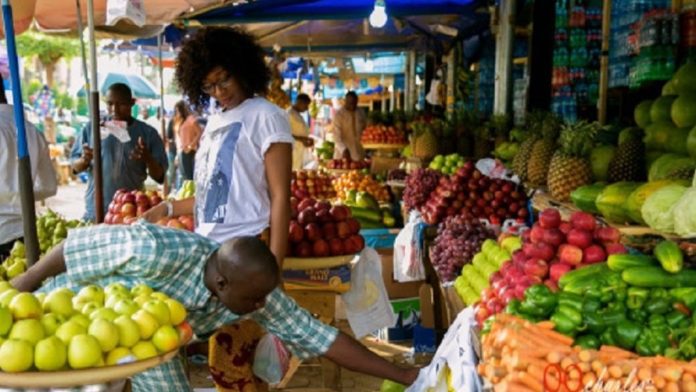News in brief:
– Nigeria inflation rate reached 28.20% in November 2023, the highest in nearly two decades, driven by soaring food prices.
– Despite government efforts to boost local food production, the inflation surge, attributed to fuel subsidy removal and foreign exchange rate unification.
Nigeria’s inflation rate climbed to a staggering 28.20% in November 2023, its highest level in nearly two decades, further deepening the country’s economic woes.
The alarming surge, as reported by the National Bureau of Statistics (NBS), was fueled primarily by rising food prices, which is squeezing household budgets and pushing millions into poverty.
The cost of food witnessed a significant jump, reaching 32.84% in November, 8.72% points higher than the same period in 2022. The burden of this surge is particularly felt in states like Kogi, Kwara, and Rivers, where food inflation surpassed 40% on average.
While the Central Bank of Nigeria (CBN) recently asserted a deceleration in inflation for next year, the current month-on-month figure paints a different picture.
Meantime, analysts attribute the recent inflation spike to the removal of fuel subsidies and the unification of the foreign exchange rate. The World Bank, in its December report, highlighted the significant impact of these policies. It noted a 163% increase in petrol prices and a 41% depreciation of the naira against the US dollar since May 2023.
Additionally, the combined effect of sluggish growth and rising inflation has pushed an additional 24 million Nigerians into poverty, raising the national poverty rate to 46%, translating to a staggering 104 million people struggling to make ends meet.
The World Bank predicts a gradual decline in poverty rates in the medium term due to potential benefits of the reforms. However, it also warns of continued high inflation in 2024 unless monetary policy tightening is accelerated.
The Tinubu-led administration has been making announcements to boost local food production in a bid to reduce inflation. So, far, these have not reflected in the price of food. The drop in maize prices in October from September was due to new harvests hitting the market and not necessarily the government measures.



